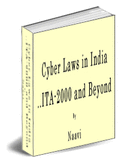.
When the problems associated with CAS were brought to the notice of the Prime Minister Mr Vajapayee a few weeks before the implementation of the scheme, he had instructed the Ministry of Information and Broadcasting to ensure that the scheme was "Consumer Friendly". Mr Ravishankar Prasad the Minister for I & B also stated in a TV debate that the scheme when introduced would be consumer friendly.
However, Mr Ravishankar could not convince Ms Sheila Dixit, Mr Bal Thackeray or Mr Buddha dev Bhattacharya in this matter and finally chose Tamil Nadu as the testing ground for the scheme.
Customer Unfriendly attitude has already unfolded
After a week long experience of the scheme, it is for Mr Ravishankar Prasad and Mr Vajapayee to convince Chennites how this scheme is to be considered consumer friendly.
An article which appears in Indian Express today, has highlighted the plight of the Consumers in the post CAS period in Chennai.
It is important to note that Chennai Cable scenario is peculiar in the sense that the industry is already notorious for its customer unfriendliness and CAS is like giving the power of law to the goons.
Chennai functions under a strict monopolistic regime of MSO s and as long as their is no freedom for the people to chose the MSO, all the talk of "Consumer Friendly" regime is an eye wash.
As has been expressed in the previous articles, though the MSO s agree that STBs are not required for viewing FTA channels, it is expected that the Cable operators would force them to buy STBs by backdoor means. Further, the scheme of SCV to offer the MSO specific STB only on outright sale basis means that the Consumer would lose the freedom of choice of the supplier for the rest of his life without the losing of the investment in STBs.
The industry is so unreliable that the charge of RS 72 (Max) for FTA channels has already become Rs 98 (Minimum). There is no way consumers can believe that either this 98 will not increase or the service provided for Rs 98 would not degenerate to the level that it would be impossible to use the services. Similarly, consumers cannot trust the Broadcasters not to increase their rates and therefore the Pay Channel subscription rates are also likely to increase further from the level of around Rs 400 for all present day cahnnels.
The STBs presently being supplied are of the lower end and not capable of any value added service such as "Pay Per View" or "Content on Demand". If such services are required in future, the consumers would be required to pay more for the upgradation or replacement of STBs.
Even the people who pay to get an STB and to view the pay channels cannot have a peaceful time since under the new monopolistic regime they will be unable to switch suppliers and cannot resist any unfair actions of the Cable TV operators.
It is not possible to rely on the Cable Operators not to charge in cash over and above the published channel subscription rates under the threat of discontinuing the feed since they can use the STB to turn off the feed whenever they want. It can even be expected that they would discontinue the collection service at the customer end and force the customers to come to their place to pay the monthly subscriptions to avoid the feed being switched off.
A Political Indiscretion for BJP?
It must be said that the BJP is doing a great disservice to the Chennai population through the CAS system and unless they wake up in time, they will have to pay a heavy political price for their indiscretion. It is time therefore for the Minister of I&B and the PM to intervene and withdraw the CAS scheme immediately and focus on bringing in competition in the Cable TV operation in Chennai before attempting any further regulation.
A Greater Threat is Looming Large
The anti consumer aspects of the CAS highlight the problems in store for the citizens of this country when the Communication Convergence Bill is passed. Once this Bill becomes an act, a Cable operator can threaten to use law and file cases against any consumer for misuse of the STB and such offences have possibilities of fines upto RS 2 crores and also imprisonment terms upto 2 years as well as civil liability upto Rs 50 crores. (Refer Chapter X and Chapter XVI of CCB).
Consumers should therefore not be complacent and accept the current regime of regulation which provides the power of law to the Cable TV operators many of whom have proved in the past to be untrustworthy. There is a need for a strong action against the current move to introduce CAS and the focus should be to bring professional discipline to Cable TV operators and ensure a fair competition in the field. A Competition will be considered fair only if there are atleast 5 MSOs and the Consumers are capable of shifting from one to the other without notice.
Naavi
September 6, 2003
Related Articles:
"Yes to CAS and No to STB" or "Yes to STB and No to CAS?"
STBs required even for Free Channels??
CAS Regime....Issues still to be Resolved
Spam Enters Indian TV Broadcasting
For Structured Online Courses in Cyber laws, Visit Cyber Law College.com
